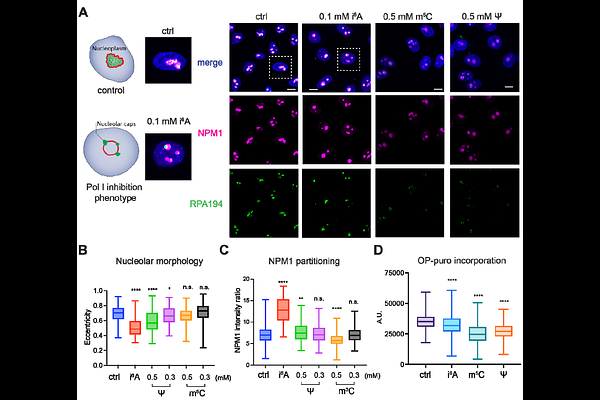Metabolism of epigenetic ribonucleosides leads to nucleolar stress and cytotoxicity

Metabolism of epigenetic ribonucleosides leads to nucleolar stress and cytotoxicity
Sun, X.; Donlic, A.; Boyer, J. A.; Reddy, N.; Brangwynne, C. P.; Rabinowitz, J. D.; Kleiner, R. E.
AbstractPost-transcriptional RNA modifications are ubiquitous in biology, but the fate of epigenetic ribonucleotides after RNA turnover and the consequences of their metabolism and misincorporation into nucleic acids are largely unknown. Here we explore the metabolism of epigenetic ribonucleosides in human cells by studying effects on cell growth, quantifying misincorporation into cellular RNAs and identifying metabolic regulators, and exploring phenotypes associated with cytotoxicity. We find that bulky N6-modified adenosines (i.e. i6A) exhibit high levels of cytotoxicity and RNA misincorporation, whereas cells dramatically restrict the misincorporation of small N6-modified adenosines (i.e. m6A), partly through sanitization by enzymatic deamination. Epigenetic ribopyrimidines also exhibit cytotoxicity, mediated primarily by nucleoside kinase UCK2, but only at much higher concentrations than ribopurines. We further characterize the effects of cytotoxic ribonucleoside metabolism on nucleolar morphology and protein translation. Taken together, our work provides new insights into the metabolism of epigenetic ribonucleosides and mechanisms underlying their cytotoxicity to cells.